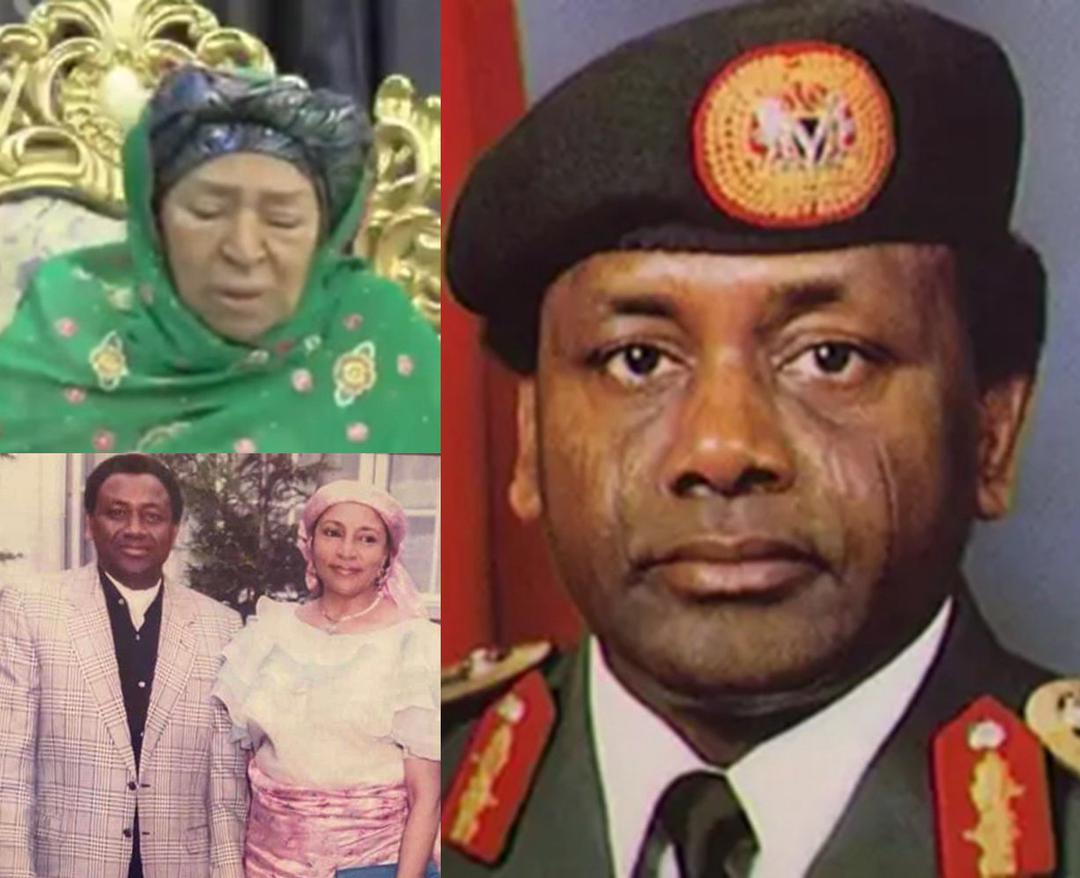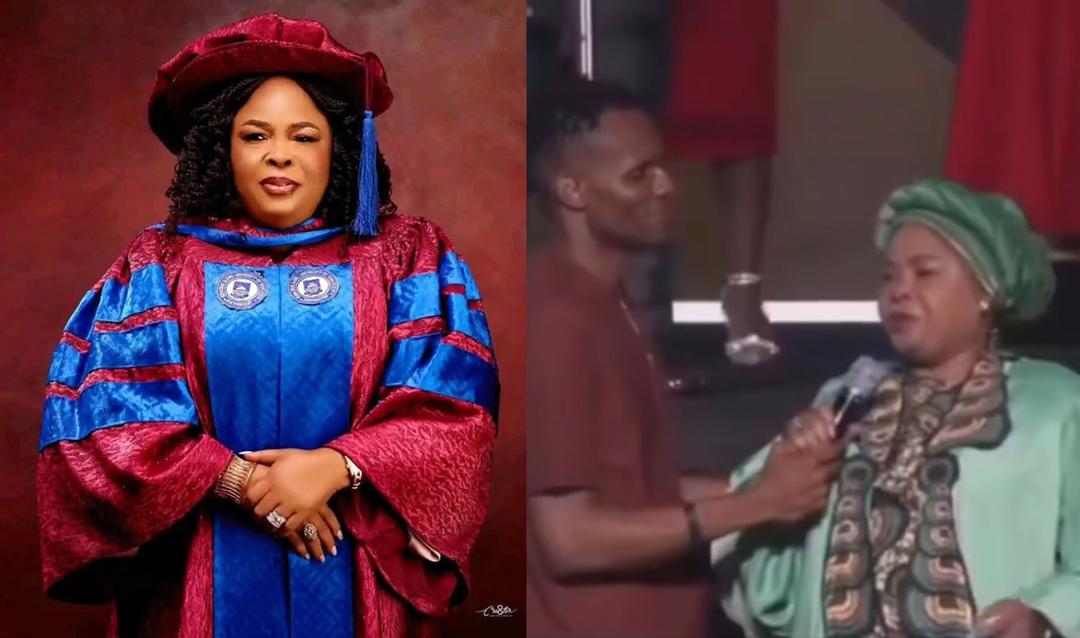
Maryam Abacha Breaks Silence: ‘The Monies My Husband Kept for Nigeria Vanished in Months—No One Is Talking About That’

In a rare and emotionally charged statement marking the 27th death anniversary of General Sani Abacha, Nigeria's late military head of state, his widow, Maryam Abacha, has broken her long-held silence with startling claims about the vast sums of money reportedly kept by her husband for the country. Speaking to reporters in Kano during a subdued family gathering to commemorate the day, the former first lady expressed her dismay and frustration over what she described as a nation’s selective memory and deliberate silence surrounding the posthumous treatment of her husband’s wealth.
Maryam Abacha, now in her seventies and seldom seen in the public spotlight, spoke in calm but firm tones, as she described what she views as a persistent and unjust vilification of her late husband. “The monies my husband kept for Nigeria vanished in just a few months,” she stated with evident pain. “No one is talking about that. Nobody wants to speak the truth.”
Her remarks have quickly sparked reactions across the country and revived a long-standing debate about the legacy of Sani Abacha, who ruled Nigeria from 1993 until his sudden death in 1998. His regime was marred by allegations of gross human rights abuses, suppression of dissent, and widespread corruption. Over the years, successive Nigerian governments and international agencies have recovered billions of dollars in what has been widely described as "Abacha loot," allegedly stashed in offshore accounts during his tenure.
However, Maryam Abacha’s new claim takes a different tone—one that paints her late husband not as a looter, but as a misunderstood leader whose financial reserves, ostensibly meant for the nation, mysteriously disappeared under the watch of those who succeeded him. “They kept blaming him for taking money, but what about what happened after he died?” she questioned. “Where is the accountability for what was done with those funds?”
Her comments strike a nerve in a country where economic mismanagement and official theft remain hot-button issues. While Nigeria has officially recovered more than $3 billion linked to the Abacha regime from various foreign jurisdictions, concerns persist over the opacity surrounding the use of these funds. Civil society groups have frequently called for more transparency in how the repatriated monies are spent, with some alleging that funds recovered in Abacha’s name may have been re-looted by newer generations of Nigerian officials.
Maryam Abacha’s statement is especially poignant as it comes against the backdrop of rising economic hardship across Nigeria. Millions of citizens are grappling with inflation, joblessness, and dwindling infrastructure. Against this backdrop, her suggestion that her husband’s so-called "monies for Nigeria" were misappropriated by others posthumously adds another layer to the country's ongoing national introspection.
“The truth is, people took advantage of his death,” she insisted. “They turned him into a scapegoat. But time is revealing things slowly.”
The former first lady’s defense of her husband is not entirely new, but her recent statements are her boldest yet in confronting the narrative that has defined Abacha’s legacy. For years, she and her family have maintained that Sani Abacha did not steal from Nigeria, claiming instead that the wealth associated with his name was mischaracterized and politicized. Still, no amount of denial has stemmed the steady flow of court rulings, foreign investigations, and international asset forfeiture cases that continue to characterize the financial trail left in the wake of his rule.
Many Nigerians on social media have reacted with a mix of disbelief, anger, and cautious curiosity. Some expressed outrage, calling her remarks a brazen attempt to rewrite history, while others saw it as an indictment of subsequent administrations who may have failed to properly manage or disclose what happened to the returned funds. “She’s not wrong to ask questions,” one user tweeted. “We should be asking what happened to all the money after it came back.”
Another user countered, “She’s playing the victim card again. The man ran the country like his personal business. Now they want sympathy?”
Still, some analysts believe Maryam Abacha’s comments, while controversial, open up necessary conversations about historical accountability and the often-murky post-recovery handling of public assets. Political commentator Jide Ogunleye notes, “While we must be cautious not to exonerate the very real abuses of the Abacha era, we also can’t ignore the pressing need for transparency in how recovered assets are used today. Her statement, however self-serving it may appear, touches on a valid concern.”
Over the years, several Nigerian administrations have announced that returned Abacha funds would be earmarked for development projects, poverty alleviation, and infrastructure upgrades. However, independent audits and public oversight mechanisms have frequently been lacking or under-enforced. In 2020, the federal government said it received $311 million from the U.S. and Jersey, which was to be directed toward major road projects such as the Lagos-Ibadan Expressway and the Second Niger Bridge. But citizens have often questioned the tangible outcomes of these financial windfalls.
In that sense, Maryam Abacha’s sudden intervention may be serving as an unintentional public service announcement—reminding the nation that even funds labeled as “recovered” can be vulnerable to misappropriation if left in the shadows.
Her words also arrive at a time of increasing public demand for good governance and fiscal accountability. With Nigerians now more digitally connected, politically aware, and civically engaged than ever, historical narratives are being continuously scrutinized, reframed, and, in some cases, challenged outright.
As Maryam Abacha concluded her remarks during the anniversary observance, she made a final plea: “Let Nigerians ask themselves, who really stole from them? Let the truth come out, not just about my husband, but about everyone who came after him.”
Whether Nigerians view her plea as sincere or manipulative may depend largely on which side of history they stand on. But her words have unmistakably reignited one of Nigeria’s most enduring and controversial legacies—one that stretches from the shadowy vaults of 1990s military rule to the brightly lit debates of modern democratic discourse.
For now, her statement stands as both a defense and an accusation—echoing through a nation still grappling with the ghosts of its past and the question marks of its present.

